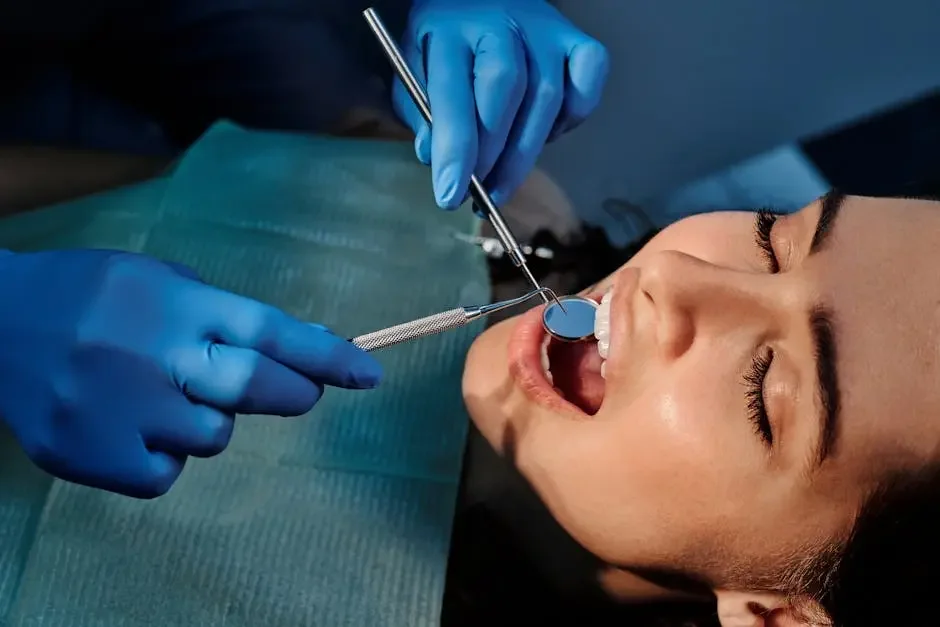7 Benefits of Choosing Painless Oral Surgery
Oral surgery can sound intimidating, but it doesn’t have to be! Choosing painless oral surgery can transform your experience from anxiety-filled to stress-free. In this blog, we'll explore the many benefits that come with opting for a more comfortable dental procedure. Whether you’re considering dental implants, wisdom tooth removal, or any other oral surgery, understanding these advantages can help you make the best choice for your oral health.
1. A Stress-Free Experience
Painless oral surgery reduces anxiety and fear, making the experience much more bearable. Patients often report feeling relaxed and at ease, thanks to modern techniques and sedation options. But what exactly happens during these procedures that shifts the emotional landscape from dread to calm? The advancements in dentistry have led to innovative protocols that prioritize patient comfort. Whether it's through sedation methods that make you float comfortably through the procedure, or local anesthesia techniques that effectively numb the area, the focus is on you having a stress-free experience.
Moreover, the reassuring environment created by dental professionals plays a vital role. From the moment you step into the office, a warm greeting and a compassionate approach can help dissolve the tension many people feel. Many clinics are now designed with patient comfort in mind, featuring cozy waiting areas and supportive staff members. This transitional approach from traditional clinical settings to patient-centric care makes all the difference.
2. Faster Recovery Times
With advancements in pain management, patients can enjoy quicker recovery times. Minimal discomfort leads to fewer complications and a swifter return to daily activities. After a painless oral surgery, many patients are surprised to find themselves back to their regular routines within a few short days. This rapid recovery can largely be attributed to the reduced stress and anxiety during the procedure itself, which often leads to a more efficient healing process.
Additionally, when patients are less fearful and more relaxed, they often follow post-operative care instructions more diligently. This adherence to guidelines—like taking prescribed medications, avoiding certain foods, or consistently applying ice packs—can significantly affect recovery speed and overall outcomes. The quicker the body heals, the sooner you can enjoy the benefits of your dental surgery, enhancing your overall quality of life.
3. Enhanced Precision
Painless procedures often utilize advanced technology that ensures greater accuracy, leading to better outcomes and less damage to surrounding tissues. For instance, modern imaging techniques and computer-assisted technology allow oral surgeons to plan and execute procedures with remarkable precision. This means that structures like nerves and blood vessels are less likely to be affected during surgery, significantly reducing the risk of complications.
Moreover, with the added layer of comfort that comes from painless methods, patients are less likely to move or tense up during procedures. This stabilization not only benefits the surgeon but also contributes to the overall integrity of the work performed. It’s a win-win situation where advanced technology and patient comfort converge for the best possible outcome.
4. Improved Patient Satisfaction
Patients who choose painless options report higher levels of satisfaction, which can positively influence their overall trust in dental care and willingness to return for future treatments. Imagine leaving your dental appointment not only pain-free but also excited about your experience. When you feel cared for and prioritized during your oral surgery, it's only natural to develop a stronger relationship with your dental provider.
Furthermore, this level of satisfaction can lead to a ripple effect. Satisfied patients are likely to share their positive experiences with friends and family, educating others and ultimately contributing to a shift in how oral surgery is perceived in society. This collective change in attitude fosters a healthier dialogue about dental health and makes individuals more willing to address their oral issues without delay.
5. Reduced Risk of Complications
Surgeries that prioritize pain management can reduce the risk of complications, leading to safer procedures and fewer post-operative issues. When patients are relaxed and calm, their bodies respond better to treatment. This physiological response can decrease stress hormones that negatively impact healing, decreasing the likelihood of complications like infections or prolonged bleeding.
Moreover, when patients are informed about what to expect during their painless surgery, they are generally better prepared to cope with post-operative care. They are less likely to experience panic or anxiety over swelling or discomfort, allowing them to navigate recovery more smoothly. This understanding is paramount for achieving the best possible health outcomes.
6. Accessible for Everyone
Painless oral surgery options are becoming increasingly accessible, allowing more patients—including those with dental anxiety—to receive necessary treatments without fear. This is a pivotal change in the dental world, where barriers often deter individuals from seeking care. Clinics that provide these options are making strides in creating environments that are welcoming and tailored to patient needs.
For those who have avoided dental care due to fear, the introduction of painless techniques can be life-altering. It opens the door to essential procedures that can enhance overall health. Patients can finally address issues that have lingered for years, leading to improved oral and general health that is both rewarding and empowering. This accessibility can redefine the relationship that many individuals have with their oral health, reinforcing the importance of seeking care in a low-stress environment.
7. Long-Term Oral Health Benefits
Prioritizing comfort in oral surgery can lead to improved long-term oral health. With less fear associated with necessary procedures, patients are more likely to maintain regular dental visits. This consistent care is vital for preventing potential dental issues before they escalate into more serious problems. When individuals feel comfortable about their options, they take proactive steps towards their dental health.
Additionally, when patients receive necessary treatments without pain, they are more likely to embrace follow-up care and routine check-ups. This not only contributes to better immediate outcomes but also enhances long-term dental stability and health. Ultimately, choosing painless oral surgery isn't just about alleviating discomfort—it's about investing in a healthier future for your smile.
